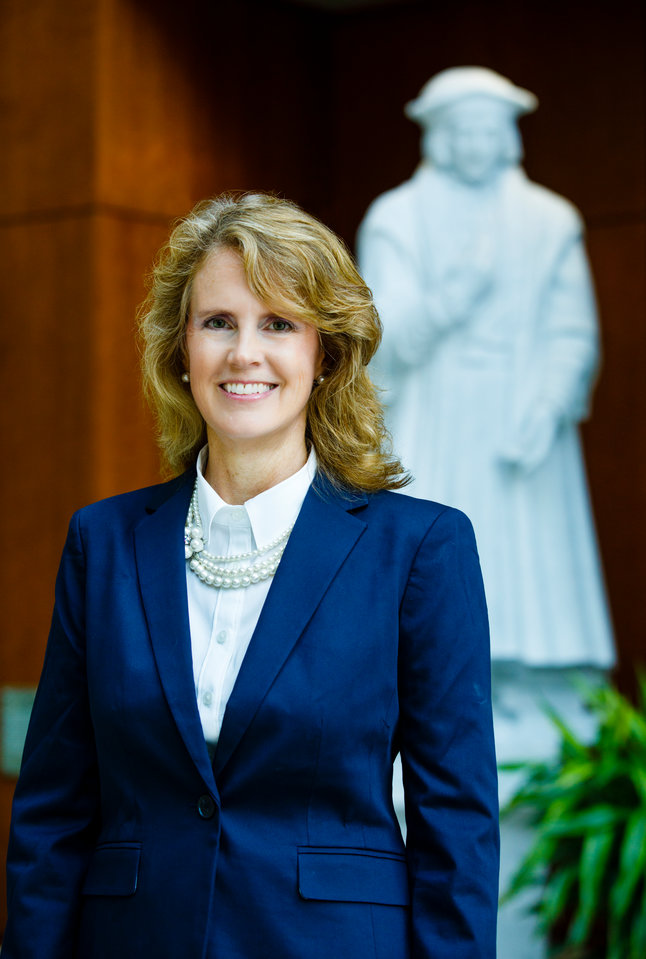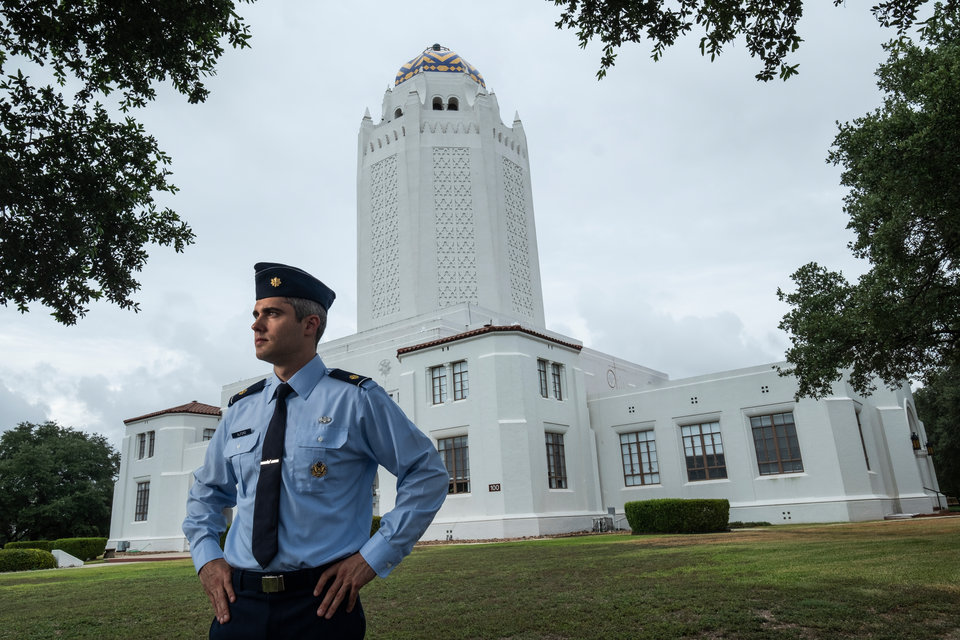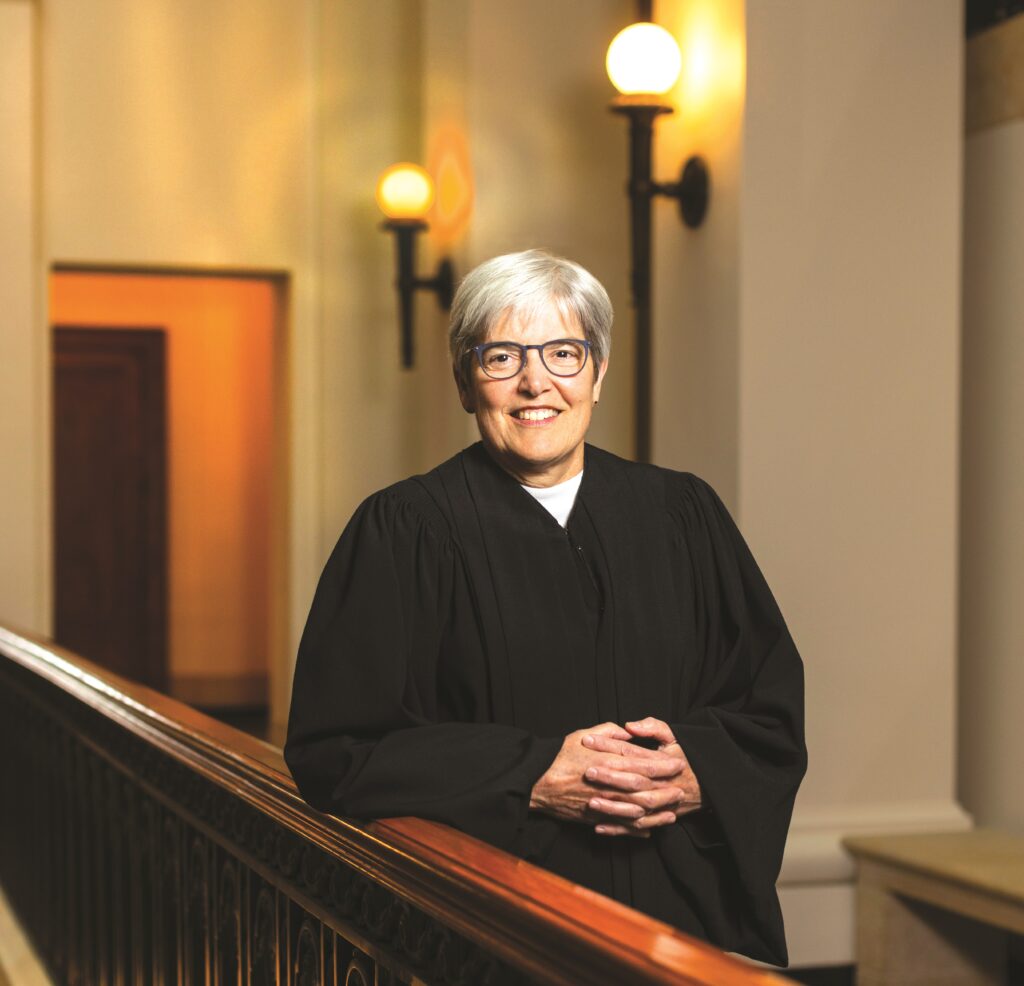Good, quality writing has been hijacked. Well-researched and thought-provoking articles have been replaced with “drive thru” reading experiences aimed at generating the most viewership. Quality and substance repeatedly are sacrificed for convenience. Everywhere you look – particularly on social media – there is a top 10 list you must read now.
Legal writing has, for the most part, been spared. Professor Julie Oseid knows this well. Not only has she been teaching the same legal writing principles to law students for 15 years, but she recently was called on by judges across the country to share her insight on legal writing. Oseid reports that depth, clarity and storytelling are still important characteristics in legal writing.
Attorneys, judges and law students have a lot they can learn from Oseid – who is a remarkable writer and teacher, and an even more remarkable person. This is another top 10 list, but one that is worth your time.
1. She cold-called St. Thomas 15 years ago and has been teaching legal writing here ever since.
Oseid’s career with St. Thomas started with an unsolicited phone call. After clerking with the 9th Circuit Court of Appeals, she litigated cases for Oppenheimer Wolff & Donnelly LLP (now Fox Rothschild LLP) for four years. She took 13 years off to be home with her children and was then eager to put her legal mind back to work. She made a cold-call to St. Thomas Law to inquire about volunteering in some capacity – a call that landed with then-Associate Dean Jerry Organ. Not long after, Oseid was offered a visiting professor position which, a year later, turned into a tenure-track position. She has taught two sections of legal writing each semester ever since.
2. She really knows how to get a job with a cold-call.
Oseid is apparently very convincing on the telephone. A little-known fact is that she obtained a coveted clerkship with Judge John T. Noonan Jr. of the 9th Circuit Court of Appeals by simply picking up the phone and calling him – a man she had never met. Oseid read about Noonan’s appointment in TIME magazine and decided to call his office at the University of California, Berkeley, where he was a professor. To her surprise, Noonan answered. And to her complete amazement, he took her up on her offer to be his clerk. Oseid quit her last semester of law school and moved to San Francisco, where she served as Noonan’s first law clerk. Noonan went on to serve on the bench for three decades, and Oseid stayed in touch with him until his death in 2017.
3. She makes legal writing memorable.
Most 1Ls begin law school believing they are good writers. After all, they could not have made it to law school without exceptional writing skills. Then they take a legal writing course, and reality sets in.
Oseid’s class is a humbling experience. The basic tenets of legal writing are foreign concepts to most students. It can be challenging and frustrating for students to set aside what they thought they knew about writing and learn to write with a clean slate.
John Pavelko ‘16, a litigator at Fredrikson & Byron, P.A., still vividly recalls Oseid’s class from his 1L year: “Professor Oseid was one of my favorite professors. She has a calm, comforting presence that motivates her students to do their best work. She did an excellent job ingraining in students the basics of legal writing, and I continue to come back to those basics today.”
Carl Numrich ‘15, also an associate at Fredrikson, said: “Professor Oseid helped to shape me into the lawyer and writer I am today. Professor Oseid taught me the technical aspects of legal writing, but more importantly, taught me to write both practically and creatively. She cares deeply about her students, both in and out of the classroom. She is an excellent teacher, mentor and person. I will always be grateful for her influence in my career and life.”
4. She has been known to make her students sing – and laugh.
Pavelko and other alumni have fond memories of Oseid’s class for another reason: her sense of humor. “I remember when she made our class sing, ‘Take Me Out to the Ballgame,’ and she called me out for not singing,” Pavelko said. “She has an awesome sense of humor.”
5. She allows her students to get creative about infamous trials.
Every other year, for the past eight years, Oseid has taught a course called (In)Famous Trials. The concept for the course came from a website that studies famous historic trials across the globe. Oseid’s course features a dozen or so historic American criminal trials, including the Rodney King trial of the 1990s, the Salem Witch trials of the 1690s, the Scopes trial of 1925, and the O.J. Simpson trial of 1995. Students read transcripts from the trials, newspaper articles and court orders, and then dissect the trial in a classroom discussion.
“The opportunity for creativity isn’t so obvious in law school, but it is in this class,” Oseid said. At the end of the course, students research and report on an infamous Minnesota trial of their choice. Students have embraced creativity in their presentations – re-enacting direct- and cross-examinations, using costumes to reflect the relevant time period, and presenting the case through a eulogy, for example.
Students love taking the class as much as Oseid loves teaching it. “(In)Famous Trials fostered some of the best in-class discussions I have ever experienced,” Molly Hough ’18 said. “It was a genuine classroom experience where ideas were challenged, encouraged, fostered and never belittled. By the end of the class, there was a community of students that had not existed before.”
6. She wrote a book about presidents, for lawyers and judges.
In 2017, Oseid published what she calls her “first and probably only” book: Communicators-in-Chief: Lessons in Persuasion from Five Eloquent American Presidents. The book offers lawyers and judges an opportunity to learn about the writing styles of five of the most persuasive U.S. presidents in history, and encourages the use of their writing qualities in legal briefs. The book features Abraham Lincoln for his brevity, Thomas Jefferson for his metaphors, James Madison for his rigor, Ulysses S. Grant for his clarity and Teddy Roosevelt for his zeal.
Oseid said the experience of writing the book was both overwhelming and rewarding. Through the process, she said she gained “empathy for my students, and the overwhelming feeling that comes with writing a lengthy legal memo during their 1L year.”
7. Judges look to her to judge their writing.
Over the past several years, Oseid has been asked to present to judges across the country about her scholarship on the writing styles of former U.S. presidents. Most frequently, she is asked to present on Lincoln and Grant. She has presented to the Kansas Judicial Practice, the National Judicial College, and the Patent Judges. Oseid has been surprised and impressed by the desire she has seen from judges to improve their legal writing.
If judges want to hear what Oseid has to say about legal writing, then practicing attorneys should pay attention as well. Her scholarship about the U.S. presidents is perhaps most obviously applicable to litigators, but Oseid notes that non-litigators, too, can enhance their writing skills through the adoption of brevity and clarity in the drafting of transactional documents.
8. She would have loved to see @HonestAbe’s tweets.
When asked to comment on the current president’s writing style and approach to using Twitter as a mode of communication, and whether that might be the feature of a future article, Oseid creatively deflected: “I would have loved to see how President Lincoln would have used Twitter to communicate.”
9. She loves to write about writers.
In addition to teaching courses, writing a book and speaking around the country, Oseid wrote a thoughtful piece on Edgar Allan Poe that was published in September. The article educates lawyers on Poe’s advice about writing, and encourages lawyers to adopt Poe’s four qualities of short story writing: brevity, unity, focus and brilliant style.
10. After 15 years, she still feels like she landed her dream job.
Oseid always wanted to be a law professor and still believes she landed her dream job at St. Thomas Law. When asked what she enjoys most about her career, there was no delay in her answer: “The people: the students, the faculty, the staff and every person who works in this building. St. Thomas creates a place of loyalty and devotion.”





